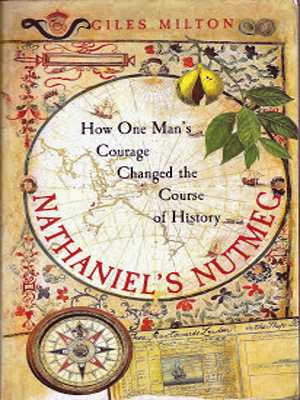Unlike salt, pepper is not essential for survival, but it has shaped history, influenced trade routes, and spiced up cuisines across the globe for thousands of years. Black pepper, once referred to as “black gold,” has been a coveted spice since ancient times, becoming a symbol of wealth and status. From the Roman Empire to the European spice wars, pepper has played an integral role in world history.
Key Points
Pepper: A Prized Commodity in Ancient Rome
Pepper’s history dates back to ancient Rome, where it was known as “piper.” The Romans were so enamored with pepper that Pliny the Elder famously lamented about the spice’s impact on Roman wealth, stating that India drained Rome of vast sums annually in exchange for pepper and other exotic goods. According to Pliny, the trade with India cost Rome about 550 million sesterces yearly—a staggering sum equivalent to around £1.4 million today.
In ancient Rome, pepper was not just a spice; it was a luxury item that appeared in everything from elaborate dishes to medicinal remedies. One of the earliest cookbooks, Apicius (also known as De re Coquinaria), written around the 4th century CE, includes pepper in 349 out of 468 recipes, highlighting its extensive use. Although often attributed to the Roman gourmand Marcus Gavius Apicius, the book was actually a compilation of ten separate recipe collections.
One such recipe is for flamingo, showcasing the lavish use of spices like pepper, cumin, and coriander in Roman cuisine. The combination of exotic ingredients underlined the high status of those who could afford such luxuries. Even after the fall of the Roman Empire, pepper continued to be a prized commodity, traded along ancient routes connecting the East and West.
Spice Trade and the Rise of European Exploration

Following the fall of Rome, pepper continued to make its way from India’s Malabar coast to Europe, primarily through Arab traders. By the Middle Ages, Italian city-states like Venice and Genoa had a near-monopoly on the pepper trade, driving prices sky-high. To break this stranglehold, European nations like England, the Netherlands, and Portugal sought new sea routes to the spice-rich East, sparking the Age of Exploration.
Such was the demand for pepper that myths began to circulate in the Spice Islands, where it was believed that the English used crushed pepper to insulate their cold houses. The spice trade not only fueled exploration but also sparked conflicts, as European powers fought to control the lucrative pepper routes. The captivating tale of this spice war is vividly recounted in Giles Milton’s Nathaniel’s Nutmeg, which delves into the intense battles between the English and Dutch for control over the spice trade.
Pepper in Medieval Europe: A Symbol of Wealth
Pepper’s value in medieval Europe is underscored by a poignant moment from history. On his deathbed, the Venerable Bede, an English monk and scholar, distributed his most prized possessions: pepper, incense, and napkins. This simple act illustrates pepper’s status as a valuable commodity in medieval times.
Contrary to popular belief, pepper was not used to mask the taste of spoiled meat. The high cost of pepper meant it was far too valuable to waste on rotten food. Moreover, stringent food quality regulations existed even in the past. For instance, in 1319, a butcher named William Sperlyn was sentenced to the pillory for selling bad beef, highlighting how food safety was taken seriously.
Culinary Legacy of Pepper
Pepper’s influence on global cuisine cannot be overstated. In 19th-century England, pepper made its way into domestic kitchens, thanks to cookbooks like Eliza Acton’s Modern Cookery for Private Families. Published in 1845, this pioneering book was the first to cater to home cooks and included the earliest known recipe for Brussels sprouts as well as Mulligatawny soup—named from the Tamil words milagu and tannin, meaning “pepper water.”
Pepper’s versatility extends beyond seasoning; it also holds medicinal value, with traditional uses ranging from aiding digestion to treating colds. Today, pepper accounts for over 20% of the world’s spice trade, a testament to its enduring popularity.
Legacy of the Spice That Shaped History
From the kitchens of ancient Rome to the spice wars of the Renaissance, pepper’s journey through history is a story of conquest, exploration, and culinary evolution. While it may not be essential for life, pepper has become an indispensable part of global cuisine, cherished for its flavor, medicinal properties, and rich historical significance.



















